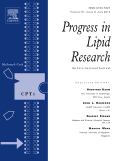
Lipids in Health and Disease
Scope & Guideline
Transforming lipid research into actionable health solutions.
Introduction
Aims and Scopes
- Lipid Metabolism and Disease:
The journal focuses on the relationship between lipid metabolism and various diseases, particularly metabolic syndrome, cardiovascular diseases, and liver conditions. It seeks to uncover the mechanisms by which lipid dysregulation contributes to disease pathogenesis. - Epidemiological Studies:
There is a strong emphasis on population-based studies that explore the associations between lipid levels, dietary intake, and health outcomes. This includes cross-sectional studies, cohort analyses, and systematic reviews that provide insights into lipid-related health risks in different populations. - Molecular Mechanisms of Lipid Action:
Research that delves into the molecular and cellular mechanisms by which lipids influence health is a core area of focus. This includes studies on lipid signaling pathways, gene expression related to lipid metabolism, and the impact of lipids on cellular functions. - Clinical Interventions and Therapies:
The journal also publishes studies on clinical interventions aimed at modifying lipid levels, such as dietary changes, pharmacological treatments, and lifestyle modifications. It evaluates the efficacy and safety of these interventions in managing lipid-related disorders. - Innovative Methodologies:
Utilizing cutting-edge methodologies, including machine learning and advanced lipidomic techniques, the journal highlights novel approaches to studying lipid metabolism and its clinical implications.
Trending and Emerging
- Integration of Lipids and Inflammation:
There is an increasing focus on the relationship between lipid metabolism and inflammation, particularly how lipid profiles can influence inflammatory pathways in various diseases, including metabolic syndrome and cardiovascular diseases. - Lipidomics and Precision Medicine:
The application of lipidomics in precision medicine is gaining traction. Research is increasingly looking at how individual lipid profiles can inform personalized treatment strategies for conditions like diabetes and cardiovascular diseases. - Impact of Lifestyle Factors on Lipid Profiles:
Studies examining the effects of lifestyle interventions, such as diet, exercise, and sleep, on lipid profiles are trending. This reflects a growing interest in holistic and preventive approaches to managing lipid-related health issues. - Mendelian Randomization Studies:
The use of Mendelian randomization to infer causality between lipid levels and health outcomes is becoming more prevalent, providing robust evidence for the role of lipids in various diseases. - Longitudinal Studies on Lipid Dynamics:
Emerging research is increasingly longitudinal, exploring changes in lipid profiles over time and their implications for long-term health outcomes, particularly in aging populations.
Declining or Waning
- Basic Lipid Chemistry:
Research focused solely on basic lipid chemistry without direct implications for health or disease has seen a decline. The journal has shifted towards studies that connect lipid chemistry with clinical outcomes or disease mechanisms. - Animal Models without Clinical Correlation:
Papers primarily using animal models to study lipid metabolism without translating findings to human health or clinical relevance have decreased. The trend is towards studies that can bridge animal research with human applications. - Single-Disease Focus:
There is a noticeable decrease in studies focusing exclusively on a single disease, such as isolated cardiovascular diseases. The journal now favors research that considers the interplay between multiple conditions and their lipid-related aspects. - Overlapping Indices for Lipid Assessment:
The use of overlapping or redundant lipid indices for assessing cardiovascular risk has diminished, as the field moves towards more standardized and clinically relevant measures. - Traditional Epidemiological Approaches:
More traditional epidemiological approaches that lack innovative analytical methods or fail to incorporate modern statistical techniques are less common, as the journal embraces more sophisticated methodologies.
Similar Journals

Journal of Clinical Lipidology
Pioneering research at the forefront of lipidology.Journal of Clinical Lipidology, published by Elsevier Science Inc, is a leading platform dedicated to advancing the understanding of lipidology and its impact on cardiovascular health. With an ISSN of 1933-2874 and E-ISSN 1876-4789, this esteemed journal boasts a remarkable Q1 ranking in key medical categories, including Cardiology and Cardiovascular Medicine, Internal Medicine, and Nutrition and Dietetics, solidifying its position as a vital resource for the latest research and clinical practices. This journal not only serves as a repository for groundbreaking studies but also provides insights into complex interactions between lipid metabolism and chronic diseases, including diabetes and obesity. Researchers, practitioners, and students will find a wealth of carefully vetted articles that drive innovation and improve patient outcomes in lipid management. Although it does not currently offer open access, the Journal of Clinical Lipidology ensures high visibility through rigorous peer review and a commitment to quality, making it an essential read for anyone invested in the future of lipidology.

MOLECULAR NUTRITION & FOOD RESEARCH
Transforming Nutritional Insights into Practical Solutions.MOLECULAR NUTRITION & FOOD RESEARCH, published by Wiley, is a premier journal dedicated to the rapidly evolving field of food science and nutrition. With an impressive impact factor and a consistent position in the Q1 category for both Biotechnology and Food Science in 2023, this journal stands out as a leading platform for researchers, professionals, and students alike. The scope encompasses a comprehensive range of topics from molecular nutrition to innovative food research, with a focus on translating scientific insights into practical applications that enhance human health. As part of its commitment to accessibility, the journal offers open access options, allowing for wider dissemination and engagement with the academic community. Given its high ranking in Scopus—placing 42nd in Food Science and 62nd in Biotechnology—the journal plays a critical role in advancing knowledge and fostering collaboration in these essential fields. For over two decades, it has provided a vital forum for cutting-edge research, ensuring that each issue contributes significantly to the discourse around food and nutrition.

Current Atherosclerosis Reports
Advancing knowledge in cardiovascular health.Current Atherosclerosis Reports, published by CURRENT MEDICINE GROUP, is a leading scientific journal in the field of Cardiology and Cardiovascular Medicine, boasting an impressive Q1 ranking in its category as of 2023. This esteemed journal, with an ISSN of 1523-3804 and an E-ISSN of 1534-6242, has been a cornerstone of cardiovascular research since its inception in 1999, continuing to publish cutting-edge studies through 2024. With unparalleled insights into the mechanisms, prevention, and treatment of atherosclerosis, it serves as an essential resource for researchers, healthcare professionals, and students alike. Although not an open-access journal, it is highly regarded within the academic community, highlighted by its Scopus rank of #54 out of 387 in its field, placing it in the 86th percentile. The journal's commitment to advancing knowledge in cardiovascular health underscores its integral role in guiding clinical practices and influencing future research directions.

PROSTAGLANDINS LEUKOTRIENES AND ESSENTIAL FATTY ACIDS
Connecting Biochemistry to Clinical InsightsPROSTAGLANDINS LEUKOTRIENES AND ESSENTIAL FATTY ACIDS is a distinguished peer-reviewed journal dedicated to advancing the understanding of the biological roles of prostaglandins, leukotrienes, and essential fatty acids in human health and disease. Published by Elsevier Science Ltd, this journal has been at the forefront of research since its inception in 1988 and continues to serve as a vital resource for researchers, clinicians, and students involved in the fields of biochemistry and cell biology. With its impact factor reflecting a solid academic presence—ranking Q3 in Cell Biology and Q2 in Clinical Biochemistry in 2023—this journal is recognized for its quality contributions, particularly in uncovering the biochemical pathways and clinical implications of these lipid mediators. Though not an open-access journal, it provides various access options to ensure the dissemination of critical findings. As the field evolves, PROSTAGLANDINS LEUKOTRIENES AND ESSENTIAL FATTY ACIDS remains a pivotal platform for the exploration and discussion of new methodologies, therapeutic avenues, and biological discoveries that impact patient care and the foundational sciences.

BIOPHYSICAL CHEMISTRY
Fostering groundbreaking discoveries in biophysical chemistry.BIOPHYSICAL CHEMISTRY, published by Elsevier, is a prestigious journal with a long-standing tradition since its inception in 1973. This highly respected journal focuses on the intersections of biochemistry, biophysics, and organic chemistry, providing a critical platform for researchers, professionals, and students to disseminate pivotal findings in these dynamic fields. With an impressive impact factor that reflects its robust academic influence and high citation rates, it ranks within the Q2 quartile among its peers in multiple categories, indicating its significance in the scholarly community. The journal, hosted in the Netherlands, encompasses a diverse range of topics, from molecular interactions to protein folding, and serves as an essential resource for those engaged in cutting-edge research. Researchers looking to share their work with a global audience will find BIOPHYSICAL CHEMISTRY an invaluable outlet, fostering the advancement of knowledge in this crucial area of science. For more information, visit the journal's page on the Elsevier platform.

AMERICAN JOURNAL OF PHYSIOLOGY-ENDOCRINOLOGY AND METABOLISM
Elevating research in physiology and metabolic science.American Journal of Physiology-Endocrinology and Metabolism, published by the American Physiological Society, stands as a leading platform for disseminating high-quality research in the fields of endocrinology, diabetes, and metabolism, as well as general physiology. With an impressive impact factor placing it within the Q1 category across multiple relevant disciplines (Endocrinology, Diabetes and Metabolism; Physiology; and Medical Physiology), this journal reflects its authoritative position in the scientific community. Spanning from 1980 to 2024, the journal consistently publishes groundbreaking studies and significant findings that advance our understanding of hormonal regulation and metabolic processes. Although it does not currently offer open access, it provides valuable resources for researchers, professionals, and students alike, eager to stay at the forefront of advancements in physiological sciences. Addressed in Rockville, Maryland, its commitment to excellence and rigorous peer review ensures that every article contributes essential insights to the field.

Cancer & Metabolism
Fostering Collaboration in Cancer and Metabolic ResearchCancer & Metabolism is a distinguished open-access journal published by BMC, dedicated to advancing the understanding of the complex interactions between cancer biology and metabolic processes. Since its inception in 2013, it has provided a platform for researchers, clinicians, and students to disseminate groundbreaking research and innovative findings within the fields of oncology and metabolism. The journal, identified by its E-ISSN 2049-3002, is recognized for contributing valuable insights into metabolic alterations that influence cancer progression, treatment responses, and overall patient outcomes. With a firm commitment to open access, Cancer & Metabolism ensures that research is freely available to the global scientific community, fostering collaboration and accelerating discoveries that can lead to improved therapeutic strategies. As a vital resource in cancer research, this journal appeals to a broad audience, including researchers looking to share their latest findings, professionals seeking to stay informed on cutting-edge developments, and students eager to delve into the relationship between metabolism and cancer.

ARTERIOSCLEROSIS THROMBOSIS AND VASCULAR BIOLOGY
Unveiling the complexities of arterial diseases with scientific rigor.ARTERIOSCLEROSIS THROMBOSIS AND VASCULAR BIOLOGY, published by Lippincott Williams & Wilkins, is a leading journal in the field of cardiovascular medicine, dedicated to the advancement of research surrounding arterial diseases, thrombosis, and vascular biology. With an impressive impact factor indicative of its reach and influence, this journal occupies a prominent position in the Q1 category of cardiology, ranking 13th out of 387 in its field according to Scopus, placing it within the top 96th percentile among cardiovascular research journals. Since its inception in 1990, ARTERIOSCLEROSIS THROMBOSIS AND VASCULAR BIOLOGY has been pivotal in disseminating cutting-edge research that drives innovation and education in cardiovascular health. Although it does not operate under an open access model, the journal is a vital resource for researchers, clinicians, and students looking for high-quality, peer-reviewed articles that contribute to the understanding and treatment of cardiovascular and vascular disorders. Its commitment to rigorous scientific standards and its focus on impactful findings make it an essential publication for anyone dedicated to the field.

BIOCHEMICAL JOURNAL
Illuminating the Path of Molecular DiscoveryBIOCHEMICAL JOURNAL, published by Portland Press Ltd, stands as a leading publication in the fields of Biochemistry, Cell Biology, and Molecular Biology, reflecting a commitment to advancing scientific knowledge since its inception in 1945. With a distinguished Q1 ranking across these categories and impressive Scopus rankings, the journal serves as an invaluable resource for researchers, professionals, and students alike, facilitating critical discoveries and innovative research practices. Although not currently offering open access, the journal provides a platform for high-quality peer-reviewed articles, ensuring rigorous standards in the dissemination of biochemical research. Spanning over seven decades and continuing through to 2024, the BIOCHEMICAL JOURNAL fosters an environment where cutting-edge biochemical research thrives, supporting the global scientific community's efforts to address complex biological questions and enhance our understanding of fundamental cellular processes.

PROGRESS IN LIPID RESEARCH
Charting the Course for Future Lipid DiscoveriesProgress in Lipid Research, published by Pergamon-Elsevier Science Ltd, is a leading scientific journal dedicated to advancing the understanding of lipid biology and its implications for human health. With an impressive impact factor, it ranks in the Q1 quartile in both Biochemistry and Cell Biology as of 2023, reflecting its vital role in disseminating high-quality research. Covering a wide scope of topics from lipid metabolism to cell signaling pathways, the journal serves as a key resource for researchers, professionals, and students alike, striving to elucidate the complex functions of lipids in various biological systems. With publication converging since 1978 and extending to 2024, Progress in Lipid Research continues to provide innovative insights and foster collaboration within the scientific community, solidifying its reputation as an essential platform for lipid research.